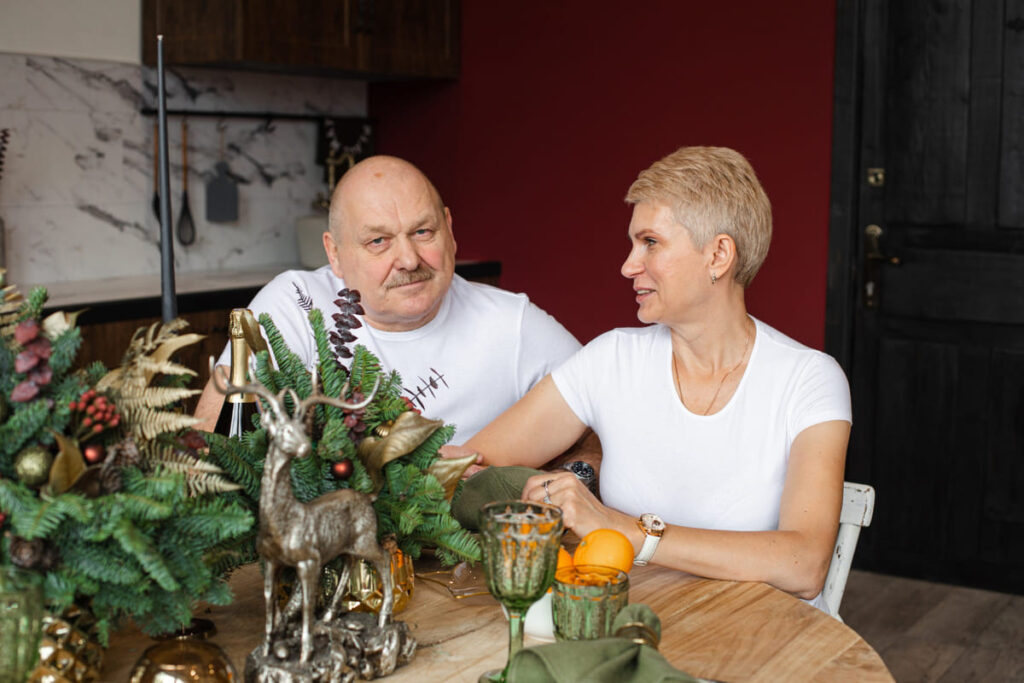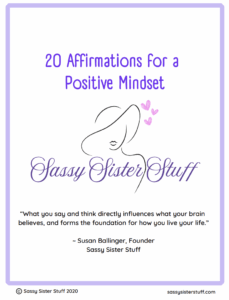12 Things No One Tells You About the Empty Nest Syndrome and How to Cope
Empty nest syndrome is something many parents face when their kids grow up and move out. It’s not just about an empty house — it’s a mix of feelings you might not expect or be prepared for.
What you might not realize is how complex and personal this transition can be, affecting your emotions and daily life in ways few people talk about. Understanding this can help you navigate the changes with more ease and awareness.
It can hit harder and last longer than you expect

Empty nest syndrome often sneaks up on you. One day, things feel normal, and the next, the silence in the house feels a little too loud. It can hit you emotionally harder than you thought it would.
You might expect these feelings to fade quickly. But many people find the adjustment takes weeks or even months. Sometimes, the sense of loss lasts much longer than you planned for.
It’s common to underestimate how much your daily routine depended on having your kids around. When that changes, you’re not just missing them—you’re missing the role they played in your life.
Give yourself space and time to adjust. It’s okay for it to feel tough for a while. Remember, this is a major transition, not just a short pause. Your feelings don’t have to fit a set timeline.
You might feel a weird mix of pride and sadness all at once

You’ll probably find yourself feeling proud of what your kids have achieved. Watching them leave the nest can remind you how well you’ve done as a parent. It’s a real milestone that deserves recognition.
At the same time, you might feel a sudden wave of sadness that catches you off guard. It’s normal to miss the daily chaos and familiar routines, even if you’re happy for them. These emotions can twist together in ways that feel confusing.
This mix of feelings is common and perfectly okay. Your brain is trying to hold two contradicting emotions at once—joy for their independence and loss for the part of family life that’s changed. Instead of pushing those feelings away, try to sit with them for a bit.
Accepting this emotional tug-of-war can actually help you make sense of what’s happening inside. You might be surprised at how much more peace you find just by acknowledging the weird blend of pride and sadness.
It’s totally normal to experience physical symptoms like fatigue or headaches.

When your kids leave home, your body might react in ways you don’t expect. Feeling tired all the time or dealing with headaches can be part of that adjustment. It’s not just in your head—these physical symptoms are real and common.
Stress and emotional shifts can make your energy drop. You might find simple tasks feel harder, or you get worn out more quickly than usual. Even changes in your daily routine can throw off your sleep, leading to headaches or fatigue.
If you notice these symptoms, don’t ignore them. Light exercise, getting outside, or just resting more can help. Sometimes, your body is just trying to keep up with the big life change you’re going through.
Moms often feel it more intensely, but dads can struggle too.

You might notice that moms often experience empty nest syndrome more intensely. This is partly because moms usually spend more time caregiving and may tie a bigger part of their identity to being a parent.
But dads can have a tough time too. Many feel stressed trying to balance work and family life, especially when their role shifts after kids leave home. You might feel pressure to stay strong for the family, which can add extra stress or anxiety.
If you’re a dad, it’s normal to feel lost or overwhelmed. Society often expects dads to be “the rock,” but that doesn’t mean you won’t struggle with the sudden quiet or change in daily routine.
Remember, both moms and dads need time to adjust. You’re not alone if you’re feeling mixed emotions, whether it’s sadness, relief, or even guilt. It’s part of reshaping your new role as a parent of adults.
Your sense of identity might take a big shake-up.

When your kids leave home, it can leave you feeling a bit lost. You might realize much of your daily routine and self-image was wrapped up in being a parent. Suddenly, the role that defined you feels empty.
This shift can make you question who you are beyond your family. It’s common to feel unsure or stuck, like your sense of self has hit a pause.
You might also notice you’re more aware of how much your identity was tied to your kids. Without that focus, it’s normal for your core values and personal goals to come into clearer view—or feel uncertain.
Use this time to explore new interests and parts of yourself. Building a broader sense of identity can help you adjust and feel more balanced. It creates space for you to grow beyond the parenting role and discover what really drives you now.
You’ll probably miss all the chaos more than you thought you would

When your kids leave, the quiet can feel surprisingly loud. You might catch yourself longing for the noise, the constant movement, and even the little messes they left behind.
The hustle of daily life suddenly slows down, and the absence of those small, chaotic moments can hit harder than you expect. You may find yourself missing the random conversations, laughter, or even the occasional argument.
It’s normal to feel like something is missing. The house can seem too big, and the silence might remind you of all the energy that used to fill the space. You didn’t realize you’d miss the chaos until it was gone.
Remember, missing this chaotic phase doesn’t mean you want your kids back under your roof right away. It just shows how much life had centered around the everyday whirlwind that comes with raising them.
It can bring up feelings of guilt and ‘Did I do enough?’ thinking.

When your kids leave home, it’s common to wonder if you did enough for them. You might find yourself replaying moments, questioning decisions, or feeling guilty about things you didn’t do.
These thoughts can sneak up on you and make you doubt your parenting. It’s normal to ask, “Could I have been more patient?” or “Did I prepare them well enough?”
Feeling guilty doesn’t mean you actually failed. Sometimes, guilt is just your mind trying to make sense of a big change.
If those feelings stick around and weigh you down, it can help to talk them out. Writing about them or chatting with a therapist might give you clarity and ease.
Remember, guilt can sometimes push you toward growth, but it’s important not to let it define how you see yourself. You raised your kids the best you could, and that counts for a lot.
Social life often needs a reboot when the kids leave

When your kids move out, you might realize your social circle has shrunk more than you expected. For years, your interactions often centered around their activities and school events.
Now, you have more time but fewer connections tied to parenting. This is a good chance to reach out to old friends or explore new groups.
You could join clubs, take classes, or volunteer. Rebuilding your social life doesn’t have to be hard, but it does take some effort.
Some people find it refreshing to have long, uninterrupted conversations again. Without kids around, you can focus more on yourself and those friendships.
It’s also an opportunity to strengthen your relationship with your partner, if you have one. Sharing experiences without the daily parenting routine can bring you closer.
Remember, social rebooting is normal and part of adjusting to this new chapter. You just have to give it space to grow.
Empty nest syndrome can overlap with other life changes like retirement or menopause.

You might not realize it, but empty nest syndrome often hits right when you’re going through other big changes. For example, menopause can bring mood swings and shifts in energy that make empty nest feelings feel even harder to handle.
Retirement, too, is a big adjustment. Losing the daily structure of work can add to the sense of loss when your kids move out.
All these changes can mix together, making it tricky to figure out exactly what you’re feeling. You may find yourself facing uncertainty about your identity or purpose at the same time as hormonal and lifestyle shifts.
Knowing these phases often overlap can help you be kinder to yourself. It’s normal to feel a bit off, confused, or even restless during this time.
You’re not just dealing with one change; it’s a mix of transitions. That mix might make things tougher, but it also gives you a chance to explore new parts of your life you hadn’t thought about before.
There’s no set timeline for ‘getting over it.’

You might hear people say you should be “over” the empty nest by now. The truth is, there’s no set timeframe for how long it takes to adjust. Everyone processes this change differently, so don’t rush yourself or let others pressure you.
Some days might feel easier, while others hit you unexpectedly. That’s normal. Healing and acceptance aren’t a straight path—they can circle back and revisit old feelings sometimes.
It’s okay to still feel a mix of emotions even months or years later. You’re not alone in this. Your experience is valid, and how long it takes is unique to you, not a rule to follow.
It’s okay to ask for professional help if it’s overwhelming.

You might feel like you should handle empty nest feelings on your own, but it’s totally normal to feel overwhelmed. Reaching out to a therapist or counselor can give you tools to manage those big emotions.
Asking for help doesn’t mean you’re weak or failing. It actually shows strength because you’re taking steps to take care of yourself.
Sometimes just talking to someone trained to listen can make a big difference. They can offer new perspectives and strategies you might not have thought of.
If you feel stuck or alone with your feelings, remember that professional support is there to guide you. You don’t have to navigate this transition by yourself.
It’s also okay to lean on trusted friends or family for advice. But if it gets too much, a professional can provide the structured help you need. Your well-being matters.
You might find new passions or hobbies during this phase

When your kids leave the nest, you suddenly have more time to focus on yourself. This can be a great chance to try out hobbies you never had time for before. Whether it’s painting, gardening, or learning a new language, exploring new interests can bring fresh energy to your daily life.
You might discover that volunteering gives you a sense of purpose. Helping out at local shelters or community centers can connect you with others and make your free time meaningful. It’s also a good way to meet people who share your values.
If you’re unsure where to start, try out a few different activities for a couple of weeks each. This approach lets you figure out what truly sparks joy without pressure. Remember, hobbies don’t have to be serious commitments; they can just be fun ways to spend time.








